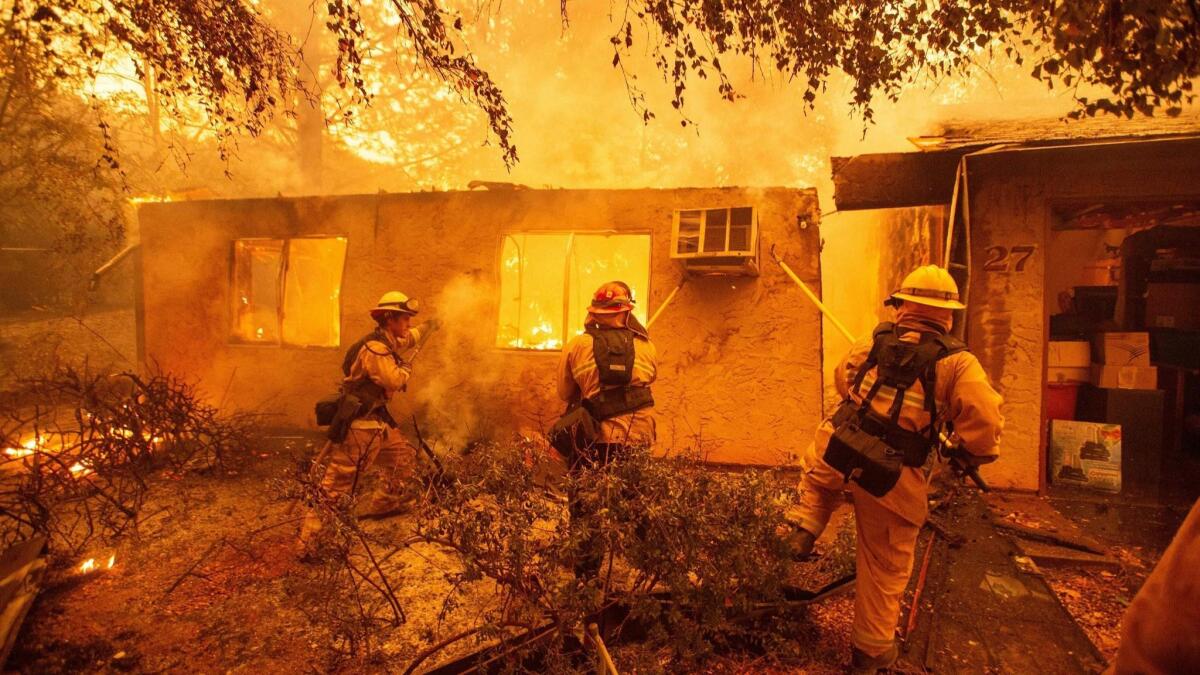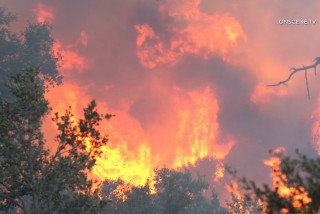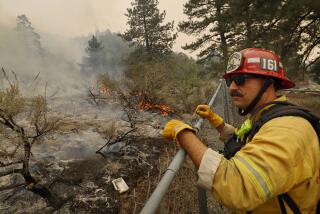2018 was California’s worst year of fire ever, federal report confirms

No state had it worse with wildfires last year than California, a federal report released this week confirmed.
According to the National Interagency Coordination Center’s year-end statistical roundup, more than 1.8 million acres of California was burned by wildland fires in 2018, surpassing the previous year’s total of 1.3 million, officials said.
“That’s the highest in the recorded history of California,” said Scott McLean, spokesman for the California Department of Forestry and Fire Protection.
More than 100 people were killed and 17,000 homes and 700 businesses were destroyed in a state where fires are considered one of the annual seasons. Crews responded to more than 8,000 fires last year.
“It’s a surprise it’s that amount, but in a sense because of what I’ve seen over the last year, no it’s not,” McLean said. “It’s what we’ve been living through.”
The last time California saw the most acres burned of any state in the nation was 2003, when a series of blazes killed dozens and scorched more than 750,000 acres in a matter of weeks.
Last year’s Carr fire in Shasta and Trinity counties killed eight people and burned 230,000 acres in late July while at the same time, the Mendocino Complex fire — a pair of blazes in Lake and Mendocino Counties — blackened 459,000 acres and killed one firefighter. The latter was also the largest fire in state history.
Then in early November, the Woolsey fire broke out in Ventura and Los Angeles counties while thousands of Northern California residents in Paradise were fleeing for their lives from the Camp fire, a fast-moving firestorm that killed 85 people and erupted the same day.
Those two fires burned a combined 250,000 acres and destroyed most of the homes that were lost in California last year.
About half the acres burned in the state in 2018 were on federal land with the rest on a mix of private, county and state lands, the report said. California accounted for 21% of all acres burned in the United States last year.
Firefighters said the most devastating blazes had the most extreme behavior — wind-driven ember storms that created spot fires far beyond defensive lines and, in the case of the Carr fire, a “fire tornado” that ignited objects lifted into the air.
The fires were stoked by winds and fed on dead brush and trees left over from years of severe drought. This year’s wet winter is promoting even more fuel to grow, McLean said.
To that end, federal and state fire agencies have said they are redoubling their efforts to reduce the wildfire threat in California through prescribed burns and treatments. In a report released this week, Cal Fire listed dozens of forest management projects it wants to complete around vulnerable foothill and mountain communities to stave off the next Paradise or Santa Rosa.
“It’s not going to stop when we complete these projects,” McLean said. “This program has to continue forever. It’s an ongoing process from here on out.”
For breaking California news, follow @JosephSerna on Twitter.
More to Read
Sign up for Essential California
The most important California stories and recommendations in your inbox every morning.
You may occasionally receive promotional content from the Los Angeles Times.











